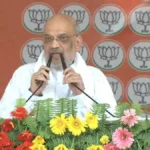Supreme Court Warns Central and Maharashtra Governments
The Supreme Court has strongly criticized the pending NIA investigations related to serious offenses, including terrorism, stating that designating existing courts as special NIA courts is unacceptable.
The Supreme Court has warned the Central and Maharashtra governments to establish new special courts for these cases by September 15. The court stated that if NIA courts are not set up, the accused will be granted bail.
In a stern tone, the Supreme Court emphasized that existing courts handling civil and criminal cases cannot bear the additional burden of NIA cases.
During the hearing, the Supreme Court stated that if the government wants to expedite NIA investigations, it must establish new courts. The court also stressed the need to appoint senior judicial officers and provide them with adequate staff and infrastructure.
Senior advocate Tridip Pais argued that his client, Kalash Ramchandani, was arrested by the NIA in a UAPA case and has been imprisoned for six years without trial because the judicial officer in the special court lacked time to process the case.
The bench of Justices Suryakant and Joymalya Bagchi told Additional Solicitor General Rajkumar B. Thakare that this is the last opportunity for the Central and Maharashtra governments to establish new special courts dedicated to NIA cases.
The bench stated that if such measures are not taken, courts will be compelled to consider granting bail to the accused in these cases due to trial delays.
Rejecting the NIA’s affidavit, the bench noted that officials have taken no effective or clear action. The NIA had claimed compliance with the Supreme Court’s order by designating existing courts as special courts.
Supreme Court
The **Supreme Court** is the highest judicial body in many countries, including the United States, where it serves as the final interpreter of federal law and the Constitution. Established in 1789 under the U.S. Constitution, it consists of nine justices who review significant legal cases and ensure checks and balances within the government. The Court’s landmark rulings have shaped civil rights, liberties, and the legal framework of the nation.
Central Government
The term “Central Government” typically refers to the national authority of a country, responsible for governance, law-making, and administration. Historically, central governments have evolved from monarchies or colonial systems to modern democratic or authoritarian structures, depending on the nation. Examples include the U.S. federal government (established by the Constitution in 1789) or China’s State Council, which oversees administration under the Communist Party.
Maharashtra Government
The Maharashtra Government is the governing body of the Indian state of Maharashtra, established on May 1, 1960, when the former Bombay State was divided into Maharashtra and Gujarat based on linguistic lines. It operates as a democratic system with a Chief Minister and a bicameral legislature, overseeing key cities like Mumbai (the financial capital of India) and Pune (a major cultural and educational hub). The government plays a vital role in India’s economy, promoting industry, agriculture, and tourism while preserving the state’s rich Marathi heritage.
NIA courts
The **NIA Courts** (National Investigation Agency Courts) are specialized judicial bodies in India established to handle terrorism-related cases and other high-profile offenses under the NIA Act of 2008. These courts were created to ensure speedy trials and stringent prosecution of crimes affecting national security, such as terrorism, espionage, and organized interstate crime. The NIA Courts operate under the jurisdiction of the National Investigation Agency, India’s premier counter-terrorism law enforcement agency.
UAPA
The *UAPA* (University of Alcalá Press) is one of the oldest university presses in the world, founded in 1486 in Alcalá de Henares, Spain, by Cardinal Cisneros. It played a crucial role in the intellectual and cultural development of the Renaissance, most notably through the publication of the *Complutensian Polyglot Bible*, a landmark multilingual biblical text. Today, it continues to promote academic and literary works, preserving its historical legacy.
Kalash Ramchandani
There is limited widely known historical or cultural information available about “Kalash Ramchandani,” as it does not appear to refer to a well-documented place or cultural site. If it pertains to a specific local landmark, family name, or lesser-known heritage site, additional context would be needed to provide an accurate summary. Please verify the name or provide more details for a precise description.
Justices Suryakant
“Justices Suryakant” likely refers to Justice Surya Kant, a sitting judge of the Supreme Court of India. Appointed in 2019, he has been involved in several landmark rulings, including cases related to environmental protection, human rights, and digital privacy. Before his elevation to the Supreme Court, he served as Chief Justice of the Himachal Pradesh High Court and has a reputation for judicial activism and progressive judgments.
Joymalya Bagchi
There is limited widely available information on “Joymalya Bagchi,” and it does not appear to refer to a well-known cultural site or place. If it pertains to a local or lesser-known location, personal heritage, or a specific cultural reference, additional context would help provide a more accurate summary. Alternatively, it may be a personal or regional name not widely documented in historical or cultural sources.






